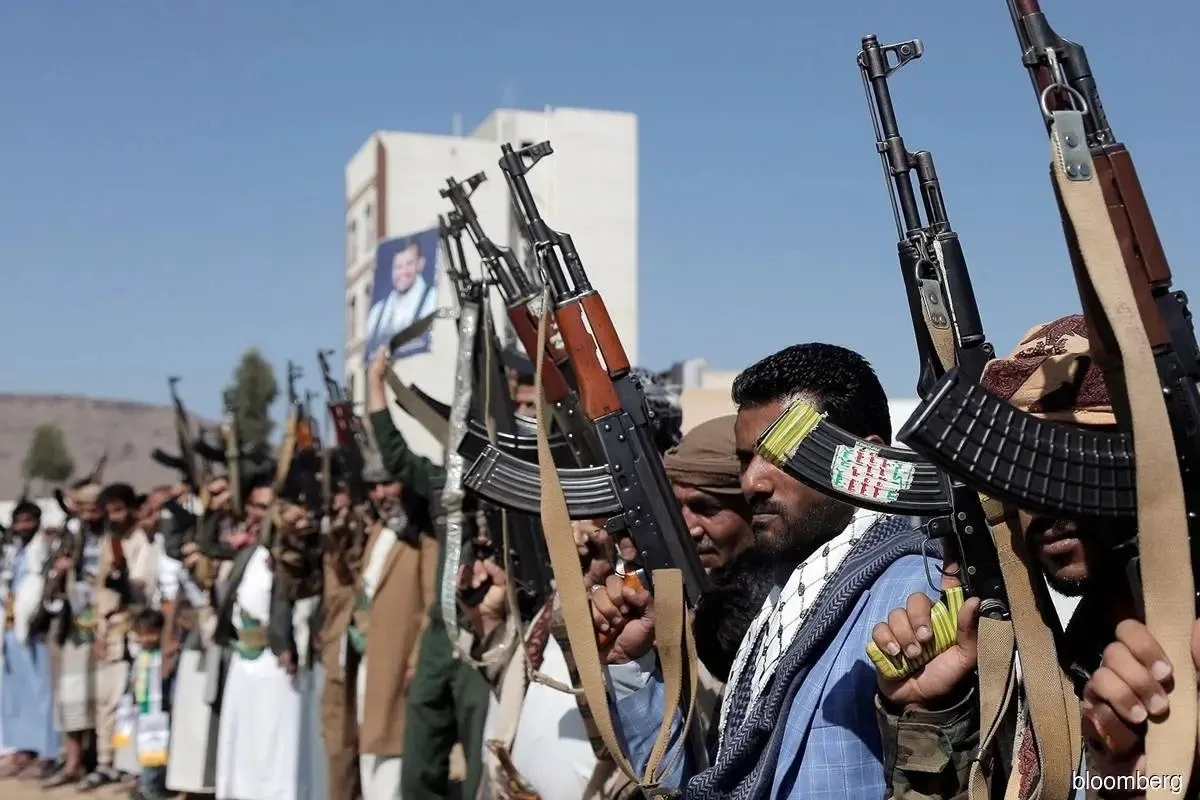23/01/2025
23/01/2025

WASHINGTON, Jan 23: U.S. President Donald Trump re-designated Yemen's Houthi movement, also known as Ansar Allah, as a "foreign terrorist organization" on Wednesday, according to the White House.
This action will impose tougher economic penalties on the group, which aligns with Iran, in response to their attacks on commercial shipping in the Red Sea and on U.S. warships guarding critical maritime routes. Supporters of this designation argue that it is long overdue, while some experts warn that it could have repercussions for those seen as supporting the Houthis, including some aid organizations.
"The Houthis' actions jeopardize the safety of American civilians and personnel in the Middle East, as well as our regional allies, and threaten the stability of global maritime trade," the White House said in a statement.
The Houthis, who control much of Yemen, have carried out more than 100 attacks on ships in the Red Sea since November 2023. They claim these attacks are in solidarity with Palestinians amid Israel’s war against Hamas in Gaza. In the process, they have sunk two vessels, seized another, and killed at least four sailors. These attacks have significantly disrupted global shipping, forcing companies to reroute cargo via longer, more costly routes around southern Africa for over a year.
The group has targeted the southern Red Sea and the Gulf of Aden, which is connected by the Bab al-Mandab Strait, a vital chokepoint between the Horn of Africa and the Middle East.
Under the Biden administration, the U.S. military worked to intercept Houthi attacks to protect commercial shipping, conducting periodic strikes to degrade Houthi military capabilities but not targeting the group's leadership. In 2021, President Biden reversed Trump's decision to designate the Houthis as a terrorist organization, citing humanitarian concerns within Yemen. However, following the attacks in the Red Sea, Biden later designated the group as a "Specially Designated Global Terrorist" organization in 2022, though he refrained from applying the more severe FTO designation.
British charity Oxfam criticized the move, warning it would worsen the humanitarian crisis in Yemen by obstructing essential imports like food, medicine, and fuel. "The Trump administration is aware of these consequences but chose to move forward anyway, and will bear responsibility for the hunger and disease that will follow," said Scott Paul, Oxfam America's director of peace and security.
David Schenker, former assistant secretary of state for Near Eastern affairs, argued that Trump’s decision was a direct response to the Houthis being one of Iran's leading proxy forces in the region. Schenker added that while this designation likely wouldn’t change the group’s behavior, it signals that the U.S. administration is not attempting to negotiate with Iran through incentives.
The Trump administration stated that the U.S. will collaborate with regional partners to undermine Houthi capabilities and cut off resources to end their attacks on U.S. personnel, regional partners, and maritime shipping in the Red Sea.
This designation will prompt a broad review of the activities of U.N. agencies, non-governmental organizations, and contractors operating in Yemen. "The President will direct USAID to terminate relationships with entities that have provided funds to the Houthis or supported international efforts to counter them while turning a blind eye to their terrorism and abuses," the White House said.
Recently, the Houthis signaled a reduction in Red Sea attacks, following a multi-phase ceasefire agreement between Israel and Hamas. Earlier on Wednesday, the group released the crew of the Galaxy Leader commercial vessel, which they had seized over a year ago off the Yemeni coast.


